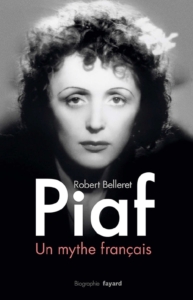What Francophile doesn’t love and associate Edith Piaf with the traditionally French sounds of pre-war cabaret and musical hall, a national treasure?
Many of her songs were apparently based on her own life: about carrying on in the face of adversity such as “Non, Je ne Regrette Rien” (I Regret Nothing) or “La Vie en Rose” (Life Through Rose-Tinted Glasses), and her famous, melancholy voice has been linked with concerts for the troops and other supporters of the war effort.
In fact, a biography about Edith Piaf, based on personal papers and hundreds of letters sent to a close friend, poet Jacques Bourgeat, paints a different picture to the documented life of the legend.
“Piaf, a French Myth” by Robert Belleret confirms a difficult and troubled life, but claims that she was not born on the streets, nor miraculously cured of childhood blindness, as she herself claimed.
It is also suggested that, although she is credited with the writing of many of her own songs, these letters were so poorly written, with spelling and grammatical mistakes, that some of the song writing is unlikely to have come from Edith’s pen.
The ‘little sparrow’ was believed to have a strong social conscience, during those troubled war years, and claimed that she had passed on fake papers during singing tours to aid escapees. In fact, according to the letters, she regularly performed for Nazi officers, amongst whom she had many friends, although she claimed afterwards to have used her popularity with the Nazis to help those in difficulty. All agree that her career was always her first priority, and the Nazis, were some of her most enthusiastic fans.
Belleret explains that the aim was to “feed the myth” of the poor little sparrow.


